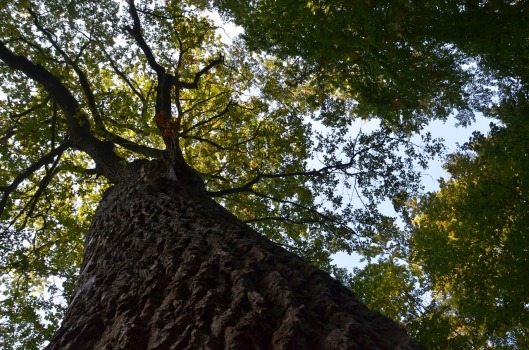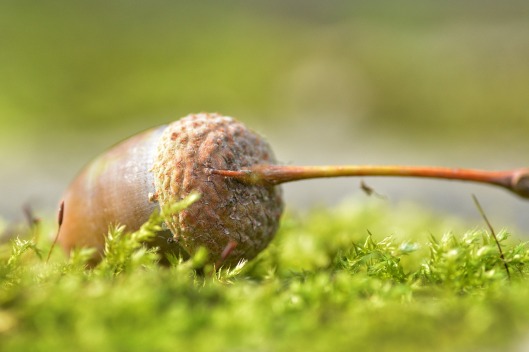Tags
art, lifehack, lifehacks, meditation, Minimalism, new thought, productivity
Spring comes late to Chicago, which is mighty frustrating after the long winter. I get impatient, walking down my street, waiting for the satisfying little splorts of green to finally peep out of the trees and the ground. “Why did I move somewhere where nature is such a grouch,” I wonder.
But until about the end of April, it’s just not time yet. Spring has been in the making all winter, and all the necessary ingredients are still brewing. Heat and light are still building. Leaves are still asleep in branches.
The other day I asked myself if I would get angry at a little sprout for not being a tree yet. I don’t, as it turns out, walk down the street and scowl at individual saplings. But I do it to myself a lot, and I get frustrated for not having more leaves and branches, so to speak, not blooming enough, not being there yet.
All over the internet I see articles and pitches for books that are supposed to speed things up. There is a seemingly infinite number of Ted talks and blog posts aimed at increasing productivity. There is a profusion of new age, new thought writings that at best are a modern retelling of ancient wisdom, and worst are a verbal swill that implies that all you have to do is wish. For the left brain, infinite lifehacks and clever strategies. For the right, affirmations galore.
Some of these pieces are truly useful. But not all of them. Taken together, in that way that information hits you so fast that you can’t think critically about it all, it leaves me with a kind of gunky residue of the mind, and what it says is, you should be doing more. You should have accomplished more by now. Because the things you want can be accomplished quickly. Other people’s accomplishments are also more visible than ever. Any image, video, or article can go viral, and being immersed in social media gives the impression that so many people, especially young people, are accomplishing so much, so quickly. So what about me? What about you?
Not everything that moves fast always moved fast. What looks like an overnight sensation or a breakaway success often has quite a lot of energy built up behind it, which is easy to overlook. A plant may bloom overnight, but what about the heat, the light, the enzymatic reactions, all building until they reach the absolute right point? When a new singer reaches the charts, I wonder how many voice lessons and flopped auditions they went through. When a new DJ starts getting booked at festivals all over, I wonder how many crappy gigs they played and how many hours they spent in their basement breaking needles and blowing fuses. (Of course, there will always be the Paris Hiltons of the world, but that’s another blog post!) Even when someone has raw talent, it has to be refined through practice.
The things that are big and epic—the mighty oaks of the business and art worlds—spent plenty of time just being regular oaks. Still providing shade and oxygen and acorns and nesting sites, but on a smaller scale. One of my favorite things to see in museums, for instance, is artists’ sketchbooks. We get used to seeing masterpieces on display, but I love seeing the sketches, all the evidence of practice and persistence. I like to see the gradual evolution, the grit and fire that goes into producing something great.
It’s a good thing, overall, to look for better ways to do things. Efficiency, strategy, and rethinking old paradigms are all good things. Keeping house and managing offices benefit greatly from these tricks and hacks and tools to cut out the extraneous. But even adopting new strategies for things like time management and positive thinking still take time to implement. New habits take time to form. It’s painful to assume that everything can be done quickly, and that if something can’t be achieved quickly, it’s not worth doing or it can’t be done.
The things I really value and want to master—writing, drawing, meditation, being a good partner, and so on—are lifelong pursuits. Some things, by nature, take time, and taking that time is scary because I’m used to instant gratification in so many other areas of life. So the challenge for a member of generation lifehack like me is not to be afraid of the alchemy of time and the risk of trying. Not to be afraid to be devoted to practice, and let it grow.


